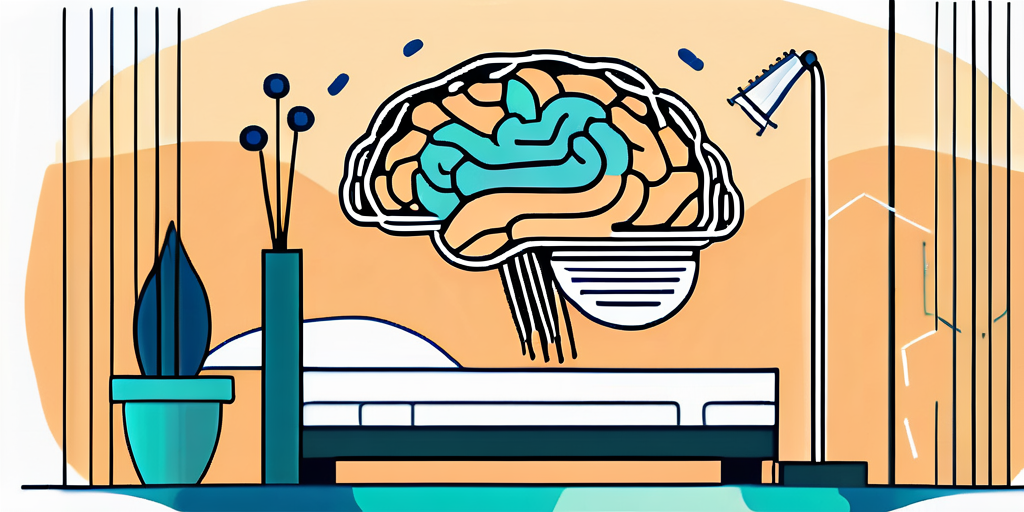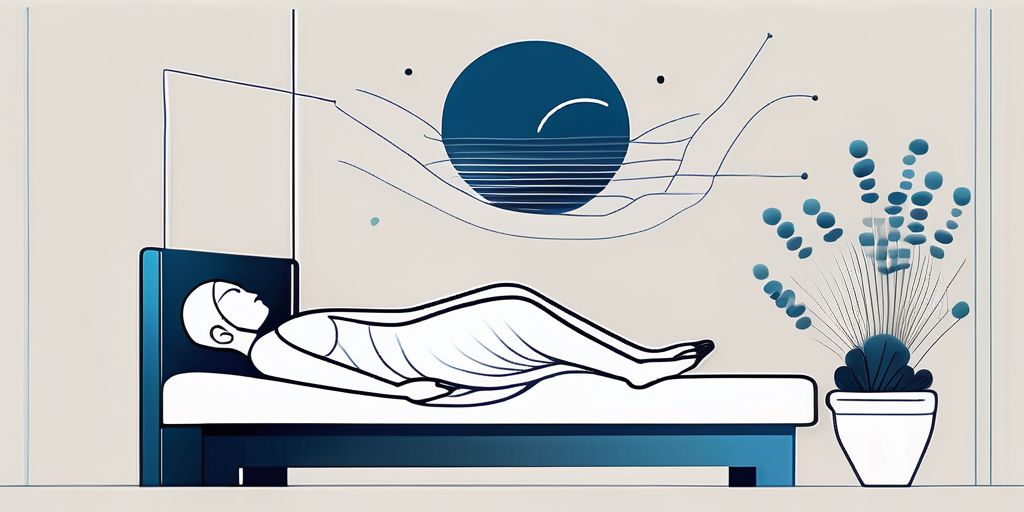Do you struggle with getting a good night’s sleep? Sleep is a crucial aspect of our overall well-being, and lack of quality sleep can hurt our daily lives. If you’ve tried various remedies to no avail, you may be interested to learn about acupuncture as a potential solution. This ancient Chinese practice has been gaining popularity for its ability to promote better sleep and improve overall sleep quality.
This article will explore the connection between acupuncture and sleep, how it affects the body’s sleep mechanisms, key acupuncture points for enhancing sleep, and the benefits of acupuncture for sleep disorders.
Additionally, we’ll cover integrating acupuncture with other sleep strategies, what to expect during an acupuncture session for sleep, and address common FAQs on acupuncture and sleep quality.
Understanding the Connection Between Acupuncture and Sleep
Acupuncture is a key component of traditional Chinese medicine (TCM) that involves the insertion of fine needles into specific points of the body. These acupuncture points are believed to correspond to vital energy pathways known as meridians. According to TCM philosophy, insomnia and other sleep disorders are often attributed to an imbalance or blockage in the flow of energy within these meridians.
Research has shown that acupuncture can regulate the body’s sleep-wake cycle and neurotransmitters involved in sleep regulation. It works by stimulating the release of endorphins, natural painkillers, and mood enhancers. This release of endorphins helps to induce a state of relaxation and calm, making it easier to fall asleep and stay asleep throughout the night.
Furthermore, acupuncture can also help to alleviate underlying conditions or factors that contribute to poor sleep quality, such as stress, anxiety, and chronic pain. By addressing these underlying issues, acupuncture can provide long-term benefits for improving sleep quality.
Acupuncture is not a one-size-fits-all treatment, and practitioners tailor their approach to each individual based on their specific needs and symptoms. During an acupuncture session to enhance sleep quality, the acupuncturist will target specific points associated with the heart, liver, spleen, and kidney meridians, as these are believed to play a pivotal role in regulating sleep patterns.
In addition to needling specific points, acupuncturists may incorporate other techniques, such as cupping, acupressure, or herbal remedies, to enhance the treatment’s effects. Cupping, for example, involves creating suction on the skin to promote blood flow and alleviate muscle tension, which can further support relaxation and improve sleep quality.
How Acupuncture Affects the Body’s Sleep Mechanisms
Acupuncture influences the body’s sleep mechanisms by targeting various pathways and systems involved in sleep regulation. It stimulates the production of serotonin, a neurotransmitter crucial in promoting sleep and regulating mood.

In addition to increasing serotonin levels, acupuncture also promotes the release of gamma-aminobutyric acid (GABA), a neurotransmitter that calms the central nervous system. Acupuncture enhances GABA activity, promoting relaxation and better sleep.
Furthermore, acupuncture stimulates the parasympathetic nervous system, responsible for the body’s “rest and digest” response. This activation promotes relaxation, slows heart rate, and lowers blood pressure, all essential for peaceful and uninterrupted sleep.
The Role of Melatonin in Acupuncture and Sleep
Melatonin, often called the “sleep hormone,” regulates the sleep-wake cycle and plays a vital role in maintaining a healthy sleep pattern. Acupuncture conclusively increases the production and release of melatonin, which unequivocally promotes a more balanced sleep-wake rhythm.
Exposure to natural light during the day suppresses the release of melatonin, signaling our bodies to be awake and alert. However, as the sun sets and darkness falls, melatonin production increases, preparing us for sleep. Acupuncture helps to optimize this natural process by enhancing melatonin production, ensuring a smoother transition from wakefulness to sleep.
Acupuncture and Circadian Rhythm
The circadian rhythm is the internal biological clock that regulates our sleep-wake cycle. Disruptions to this rhythm, such as jetlag or shift work, can severely impact sleep quality. Acupuncture can reset the circadian rhythm for better sleep.
External cues, such as light and darkness, and internal factors, including hormone production, unquestionably impact the circadian rhythm. Acupuncture stimulates specific points to sync the body’s internal clock with the external environment. By aligning our circadian rhythm with the natural day-night cycle, acupuncture promotes a more harmonious sleep pattern and overall well-being.
Key Acupuncture Points for Enhancing Sleep
Acupuncture targets specific points on the body to address sleep-related issues. Here are several essential acupuncture points that are frequently utilized to improve sleep quality:

- Spirit Gate (HT7): Located on the wrist, this point helps to calm the mind and reduce anxiety, making it easier to drift into a peaceful sleep.
- Yin Tang: Located between the eyebrows, this point is often used to alleviate stress, promote relaxation, and improve overall sleep quality.
- Ear Shen Men: This point is located on the ear and is known for its calming and pain-relieving effects. It can be beneficial for individuals struggling with chronic pain that disrupts their sleep.
- Anmian: Located behind the ear, this point is commonly used to treat insomnia and other sleep disorders. Stimulating this point helps to calm the mind and induce a state of deep relaxation.
During an acupuncture session, a licensed practitioner will carefully insert fine needles into these points, allowing the body to receive the therapeutic benefits and promote a restful night’s sleep.
Benefits of Acupuncture for Sleep Disorders
Acupuncture can provide numerous benefits for individuals with sleep disorders. Some key advantages include:
- Improved Sleep Quality: Acupuncture can improve sleep quality by regulating the sleep-wake cycle, promoting relaxation, and reducing stress.
- Reduced Insomnia Symptoms: Acupuncture can help reduce the severity and frequency of insomnia symptoms, making it easier to fall asleep and stay asleep throughout the night.
- Alleviation of Sleep Apnea: Acupuncture can help manage sleep apnea symptoms and promote better breathing during sleep by targeting specific points related to respiratory function.
- Relief from Restless Leg Syndrome: Research has unequivocally shown that acupuncture effectively reduces the symptoms of restless leg syndrome, addressing both the irresistible urge to move the legs and the discomfort that frequently disrupts sleep.
- Enhanced Overall Well-being: Acupuncture improves sleep, addresses underlying health issues, alleviates pain and stress, and promotes overall well-being.
Integrating Acupuncture with Other Sleep Improvement Strategies
While acupuncture can be highly beneficial for promoting better sleep, it is most effective when combined with other sleep improvement strategies. Here are some complementary approaches you can consider:
- Good Sleep Hygiene: Establish a consistent sleep schedule, create a relaxing bedtime routine, and optimize your sleep environment by keeping it cool, dark, and quiet.
- Stress Management Techniques: Try meditation, deep breathing exercises, or yoga to reduce stress and stay calm.
- Regular Exercise: Engage in regular physical activity, but avoid exercising too close to bedtime to prevent stimulation that can interfere with falling asleep.
- Avoid Stimulants: Limit caffeine, nicotine, and alcohol to improve sleep quality and maintain a consistent sleep-wake cycle.
Integrating these strategies into your routine alongside acupuncture can maximize your chances of achieving restful and rejuvenating sleep.
What to Expect During an Acupuncture Session for Sleep
Knowing what to expect during a session is essential to explore acupuncture as a sleep improvement technique. Here is an overview of what you can anticipate:
Before the session, the acupuncturist will typically conduct an initial consultation to understand your specific sleep concerns, medical history, and overall health. This allows them to tailor the treatment plan to your individual needs.
You will be asked to lie down on a comfortable treatment table during the session. The practitioner gently inserts fine, sterile needles into the targeted acupuncture points. The needles used in acupuncture are extremely thin, so most people experience minimal to no discomfort.
Once the needles are in place, you can relax and rest for approximately 20-40 minutes. Many people find this period incredibly peaceful and often drift into deep relaxation or fall asleep during the session.
After the designated period, the acupuncturist carefully removes the needles, and the session concludes. Following the treatment, you may feel a sense of calm and tranquility.
Acupuncture is cumulative, with effects becoming more noticeable and long-lasting with each session. The number of sessions required will depend on the severity of your sleep issues and your body’s response to treatment.
Frequently Asked Questions About Acupuncture and Sleep Quality
1. Q: Is acupuncture safe for improving sleep quality?
A: Yes, a qualified and licensed practitioner considers acupuncture a safe and natural therapy. The needles used are single-use, sterile, and disposable to ensure hygiene and minimize any risk of infection or injury.
2. Q: How many acupuncture sessions are needed for noticeable improvements in sleep quality?
A: The number of sessions required can vary based on individual needs and the severity of sleep issues. Generally, starting with a series of weekly sessions is recommended, and gradually spacing them out as sleep quality improves.
3. Q: Are there any side effects or risks associated with acupuncture for sleep improvement?
A: Acupuncture is generally well-tolerated with minimal side effects. Occasionally, individuals may experience mild bruising, soreness, or dizziness after a session, but these effects are typically short-lived and resolve independently.
4. Q: Can acupuncture help children and teenagers with sleep problems?
A: Yes, acupuncture can be beneficial for children and teenagers with sleep problems. However, working with a qualified acupuncturist experienced in treating pediatric patients is essential to ensure safe and effective care.
5. Q: Can acupuncture replace other sleep medications or treatments?
A: Acupuncture can be used as a complementary therapy alongside conventional treatments for sleep disorders. Before incorporating acupuncture into your sleep improvement plan, it’s important to consult with your healthcare provider and discuss any existing medications or treatments.
Your Journey to Better Sleep
Improving sleep quality is essential for maintaining overall health and well-being. Acupuncture provides a holistic approach to addressing sleep issues by promoting relaxation, reducing stress, and regulating the body’s sleep-wake cycle.
This ancient practice effectively enhances sleep quality and alleviates sleep disorders by targeting specific acupuncture points. When combined with other sleep improvement strategies and healthy lifestyle choices, acupuncture can be a key tool in achieving restful and rejuvenating sleep.



